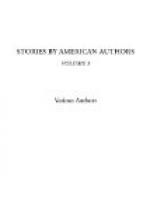It terminated in the surrender of the “Tornado,” after the loss of her captain, five officers, and forty of her crew. The “Lancaster” was badly cut up about the rigging, but otherwise uninjured. Her loss was but five men. The first tidings of this was the arrival of the “Tornado” in Hampton Roads, with a prize crew on board, and the royal ensign of Spain floating beneath the stars and stripes.
When the extras announcing the news were shouted in the streets, the enthusiasm of the people knew no bounds. From every building, from every window, the flag was displayed. Throngs of excited men marched through the avenues, cheering and shouting, and the recruiting was renewed so vigorously, that New York’s quota of the four hundred thousand men called for by the President was filled within the next twenty-four hours after the news came.
In the midst of this furore, the bulletins announced that the Spanish ironclads “Zaragoza” and “Numancia” had sailed from Havana, with no destination announced; that their consorts, the “Arapiles” and “Vittoria,” together with three transports, “San Quentin,” “Patino,” and “Ferrol,” the latter well laden with coal and provisions, were preparing to follow; also, that the huge “El Cid” had been fitted for sea, and was about to sail from Vigo, Spain.
Just before this intelligence arrived, the United States steam frigate “Franklin,” forty-three guns, carrying the flag of Vice-Admiral Stephen C. Rowan, left Hampton Roads on a cruise, northwardly.
Where were the Spanish ironclads going?
On Sunday morning, April 9th, Trinity Church was crowded with worshipers. The venerable Bishop of New York was present, and was to deliver the sermon. His erect, stately form, clad in the flowing robes of his office, had just appeared in the pulpit, and he had spoken the words of his text, when a commotion in the rear of the church caused him to stop and look up, wondering at the unseemly interruption.
A soldier emerged from the crowd, and, making his way to the Astor pew, handed a letter to Mr. John Jacob Astor. The ruddy face of that gentleman blanched as he read its contents. Then he rose, walked to the pulpit, and handed the missive to the bishop.
A dead silence prevailed—at last broken by these simple words:
“Brethren, the war-vessels of the public enemy have appeared off our Harbor. Let us pray.”
A deep, heart-felt Amen responded to the appeal made in eloquent, though faltering, tones; and then, quiet and orderly, the congregation left the temple. It was fitting that such a prayer should be the last ever offered in a sanctuary of which, but a few days later, only a heap of smoking ruins remained.
The same news had been forwarded to the other churches, and the congregations, dismissed, had gathered in front of the great bulletin-boards which had been erected in the various parts of the city. In huge letters were the words:




